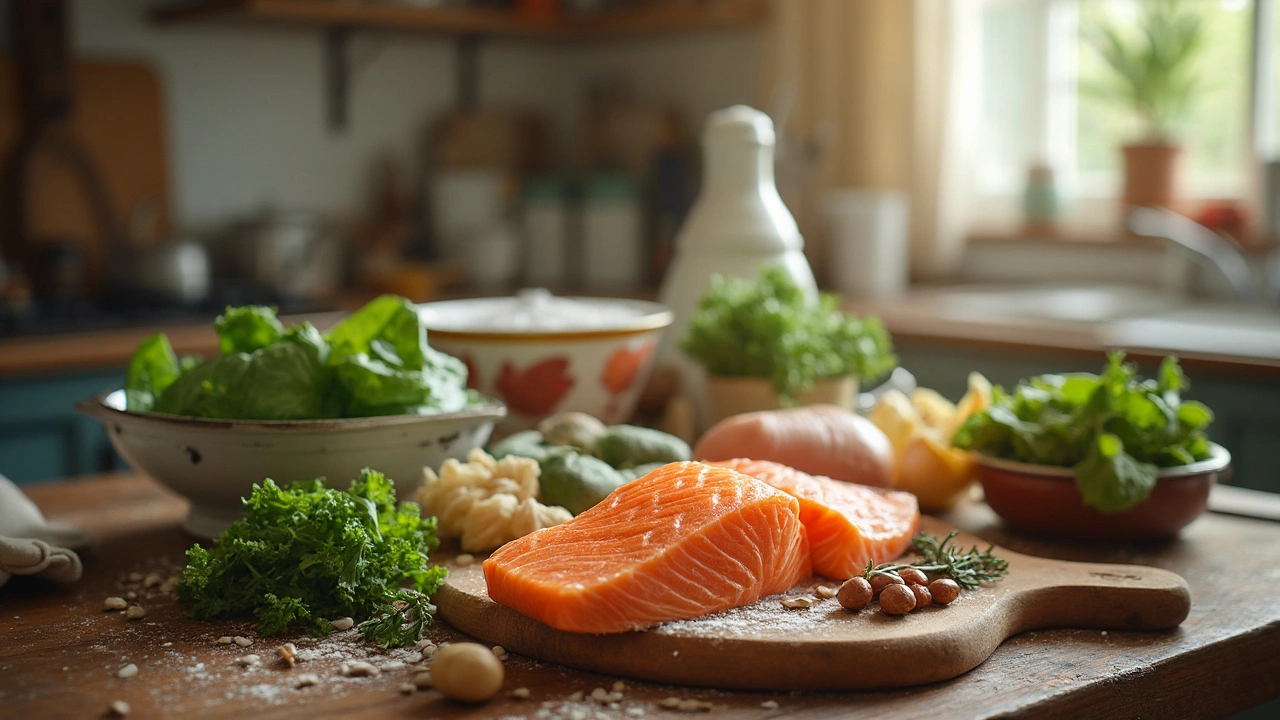Diet: Eat to Make Your Medication Work Better
Food matters when you take medicine. Some meals help drugs absorb. Others block them or increase side effects. This page focuses on simple, practical diet moves that make your prescriptions safer and more effective.
How food changes medication effects
Certain drugs need you to eat first. Fat-soluble meds, like some thyroid or antiviral drugs, absorb better with a small amount of healthy fat. Other medicines ask for an empty stomach because food slows absorption and reduces effect. Grapefruit is a classic problem — it can boost levels of many drugs and cause side effects. High-vitamin K foods (like spinach and kale) can reduce how well warfarin works. Calcium-rich foods or supplements can bind with antibiotics such as doxycycline or some thyroid pills, making them less effective if taken together.
Timing is an easy fix. If a drug label says "take on an empty stomach," aim for 1 hour before or 2 hours after a meal. If a medicine is best with food, take it during or right after eating. Keep a short note in your phone for every prescription: food instructions, critical interactions, and any foods to avoid.
Practical diet tips for common meds and conditions
Thyroid meds: Take levothyroxine first thing in the morning with a glass of water. Wait 30–60 minutes before breakfast. Coffee, calcium, and iron supplements cut absorption. If you use a pill organizer, keep thyroid pills separate and set an alarm.
Antibiotics and dental infections: Some antibiotics work better with food to prevent stomach upset; others should be spaced from dairy and calcium. For dental infection alternatives to amoxicillin, follow your dentist’s timing instructions closely and ask whether to avoid milk, yogurt, or supplements around doses.
Antidepressants and some supplements: St. John’s wort and high-dose omega-3s can change how psychiatric meds work. If you’re buying antidepressants or supplements online, pick reputable sources and mention any herbal products to your prescriber.
Supplements like magnesium aspartate: These can help energy and recovery, but timing matters. Take minerals at a different time than thyroid pills and some antibiotics. Keep doses moderate and track any stomach upset.
Travel and illness: When you travel, stick to simple, familiar foods and drink bottled water if needed. If you’re on meds that cause dehydration risk or raise body temperature, hydrate more and avoid heavy alcohol or very salty meals.
Quick daily checklist: 1) Read the medication label for food notes. 2) Note problem foods (grapefruit, high-vitamin K). 3) Space calcium/iron away from thyroid and certain antibiotics. 4) Ask your pharmacist if a medicine needs food. 5) Track supplements and mention them to your doctor.
Want specifics for a drug you take? Search our site for guides like "Synthroid Oral Guide," "Aspartates," or articles on safe online pharmacies. If something feels off after a meal and a dose, call your pharmacist. Small diet changes can prevent big problems.
